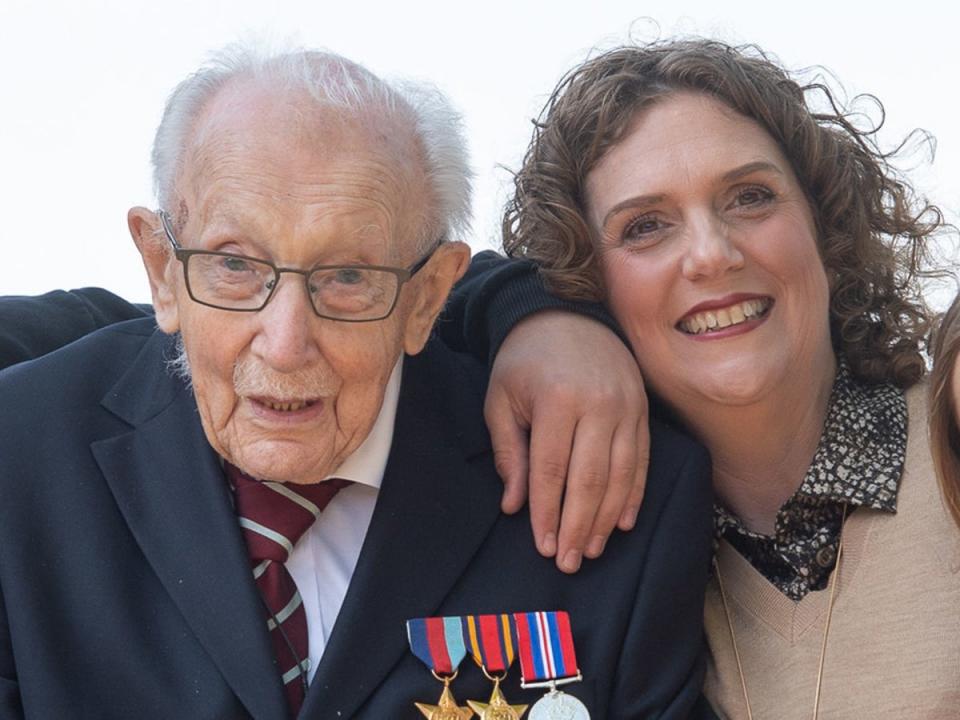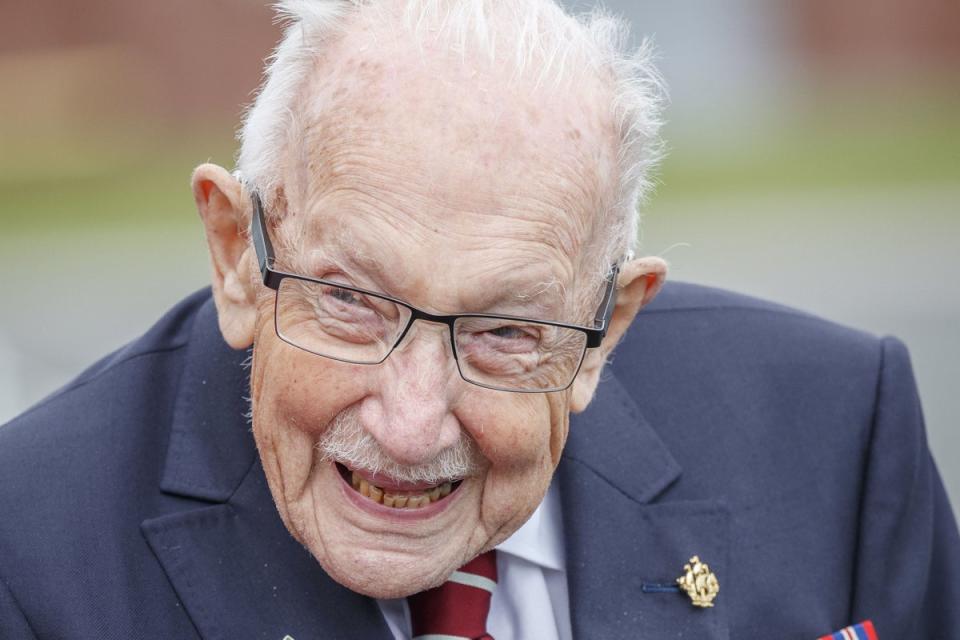According to the bio on her website, Hannah Ingram-Moore is “one of Britain’s leading business women”. As well as being a life coach who teaches people to “Be Moore Remarkable”, she claims to share the values of her father — the lockdown hero, Captain Tom Moore.
“Everything in my life is about investing in others,” she is quoted as saying. “I feel the weight of responsibility for doing the right thing, for not letting people down and responding to the love and compassion that has come our way.”
It’s hard not to guffaw at all this in light of the two-year inquiry into the Captain Tom Foundation, which was published last night. In a damning 30-page report, the Charity Commission details the “serious and repeated instances of misconduct” by the Ingram-Moores, who were founders and trustees of the charity.

The story reads like a fairytale in reverse. It begins in harmony, with Captain Tom Moore raising over £38 million for NHS charities during lockdown in 2020 by walking loops of his garden. He became the patron saint of selfless determination for a nation craving unity. The 100-year-old was knighted for his fundraising efforts but died in February 2021 after catching Covid. At this point the panto-villain figures of his daughter Hannah and her husband Colin take centre stage.
The Captain Tom Foundation was set up by the couple with the aim of raising money for charities that support the elderly, sick and vulnerable. It has donated over £1.4 million for seven charities, according to its website. However, the Charity Commission’s chief executive David Holdsworth says that Hannah and Colin Ingram-Moore benefited significantly from endeavours related to the charity and that there was a repeated “blurring of boundaries between private and charitable interests”.

The couple are found to have personally profited from the foundation through a series of lucrative deals and commercial ventures dressed up as charitable ones. Money that was ostensibly raised for those in need found its way into the pockets of the Ingram-Moores, while Captain Tom’s name was plastered over everything from bottles of gin to planning applications, giving commercial and personal ventures a veneer of philanthropy.
Perhaps the most egregious finding from the report is that the Ingram-Moores pocketed a £1.5 million advance from Penguin for a three-book deal with Captain Tom. Both Penguin and the books’ publicist told the inquiry that they believed part of the advance would go to charity, but none of it did. Nor did proceeds from Captain Tom’s memoir, Tomorrow Will Be A Good Day, despite a press release which claimed that sales would “support the Captain Tom Foundation”.

The fourth book authored by Captain Tom is the only one that has raised money for charity. 100 Reasons to Hope was published in 2021, and £1 for every copy sold was donated to charity, raising £17,862. Other than those funds, the book deals were “purely commercial”, despite appearing to be charitable ventures, according to the inquiry.
It’s clear to see where the temptation lay. A saintly nimbus glowed around the name of Captain Tom and the Ingram-Moores decided to capitalise on it. They applied for planning permission for an outbuilding at their home in Bedfordshire, calling it the “Captain Tom Foundation Building”. Perhaps it would be somewhere to host charity events or workshops for the vulnerable, but it transpired that they were building an indoor spa and pool complex. I suppose the logic was, my Dad raised nearly £40 million for charity, can’t I at least get a bloody swimming pool out of it? A line said by Lena Dunham’s mum in the TV show Girls springs to mind. “I’ve worked very hard,” she says, thinking of her retirement. “I want a lakehouse. I want to sit by a f***ing lake”.

The Ingram-Moores clearly have an entrepreneurial spirit. When Hannah was taking up the role of CEO of the charity, she initially asked for a £150k salary. This request was rejected on the grounds that it was nearly double the normal pay for a CEO in a charity’s first year. The couple also set up an online shop selling all sorts of Captain Tom branded merch, from T-shirts to a red rose to a £100 bottle of gin. It was all very hazy how much of the profits from the online shop was going to charity, but the commission found that only £1,269.75 was donated overall and the website operated at a loss. But remember, Hannah is one of “Britain’s leading business women”.
There is a mountain of evidence detailing the misdemeanours of the Ingram-Moores, ranging from incompetence to immorality. In July Hannah and Colin were disqualified from acting as charity trustees for 10 and eight years respectively, but the couple insist that the inquiry has been too hard on them. “We are increasingly concerned that the Charity Commission’s process may have evolved into a relentless pursuit,” they said, adding that they were in “constant fear and mental anguish.”

All the branded merch and the shady dealings and the six-figure salary demands point to the idea that the Ingram-Moores had that most human of feelings after Captain Tom’s star turn: what’s in it for us? As chief executive of the charity commission David Holdsworth put it, Captain Tom inspired the nation with his “determined fundraising”, but “the charity set up in his name has not lived up to that legacy of others before self.” They turned Captain Tom into a brand name and a business, tarnishing that very pure image of a man doing his little bit to help others.
Some, if not most people are not cut out for charity work, and it appears the Ingram-Moores are a shining example of that. In all likelihood, the world is made up of more Hannahs than Toms, but some are just better at hiding it than others.
EMEA Tribune is not involved in this news article, it is taken from our partners and or from the News Agencies. Copyright and Credit go to the News Agencies, email news@emeatribune.com Follow our WhatsApp verified Channel




